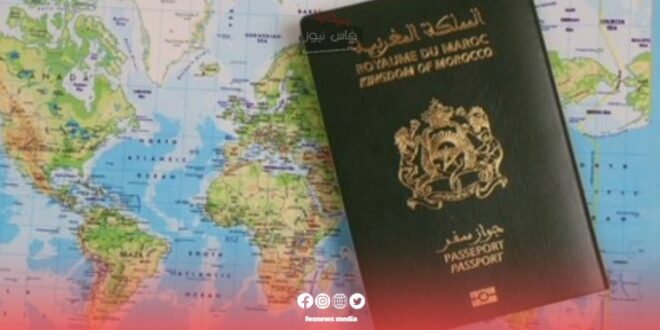The Schengen visa is one of the most sought-after visas by Moroccan citizens due to the deep commercial and cultural ties between Morocco and European Union countries. As 2025 approaches, new changes in visa issuance laws are emerging, which may impose stricter conditions on applications, including those from Morocco. What are the key amendments and challenges that Moroccans may face in this context?
1. Enhanced Identity Verification Procedures
One of the most notable changes to be implemented in 2025 is the enhancement of identity verification procedures. Concerns about the misuse of visas for illegal purposes, such as illegal immigration, are increasing. Therefore, the new visas are expected to require applicants to provide additional documents to accurately verify their identity, such as advanced biometric analysis, along with more complex security checks. This will require Moroccan citizens to prepare extra documents to clarify their identity and social and economic stability.
2. Stricter Criteria for Assessing Financial Stability
One of the updated conditions in 2025 will be a greater focus on accurately assessing applicants’ financial status. Moroccans wishing to obtain a Schengen visa will need to provide evidence of their financial stability, such as bank accounts with a sufficient balance and proof of steady income. It will be necessary to demonstrate the ability to cover all expenses during the trip, including accommodation and transportation, which may place an additional burden on many applicants who may struggle to provide the required financial documents.
3. Restrictions on Tourist and Short Stay Applications
In 2025, significant changes are expected in the handling of tourist and short-stay visa applications. European authorities are aiming to reduce the number of tourist visas granted and focus more on visas issued for commercial or professional purposes. This approach may have a significant impact on Moroccans wishing to visit Europe for tourism or study, as they will be required to provide stronger justifications and more details about their travel plans.
4. Stricter Health Insurance Requirements
There will be stricter conditions regarding the health insurance required to obtain a Schengen visa. Starting in 2025, Schengen visas will be contingent on providing documents confirming that the applicant has valid international health insurance that covers all potential medical expenses during their stay in the Schengen Area. The insurance will include coverage for emergency treatment and medical evacuation, increasing the overall cost of the trip.
5. Reduction in the Validity of Short-Term Visas
Another expected amendment is the reduction in the validity of short-term visas. Previously, Schengen visas were issued for up to 90 days, but with the new tightening measures, this duration may be shortened, which could impact many Moroccan travelers planning to stay for an extended period.
6. Impact on Youth and Residents of Remote Areas
These strict conditions are expected to particularly affect certain segments of Moroccan society, such as youth or residents of remote areas. Some individuals may find it difficult to meet the financial requirements or obtain the necessary documents, which could limit their opportunities to travel to Schengen Area countries. This indicates that the new amendments may increase challenges for a large segment of applicants.
Based on these anticipated changes, it is expected that obtaining a Schengen visa will become more complicated for Moroccan citizens in 2025. While these changes may aim to reduce illegal immigration and enhance the security of European borders, they may present additional challenges for those wishing to travel to Europe. It is important for Moroccans wishing to apply for a Schengen visa to be prepared for these strict conditions and begin preparing their applications thoroughly and comprehensively to avoid any issues during the application process.
Source: Fes News Media
 فاس نيوز ميديا جريدة الكترونية جهوية تعنى بشؤون و أخبار جهة فاس مكناس – متجددة على مدار الساعة
فاس نيوز ميديا جريدة الكترونية جهوية تعنى بشؤون و أخبار جهة فاس مكناس – متجددة على مدار الساعة












